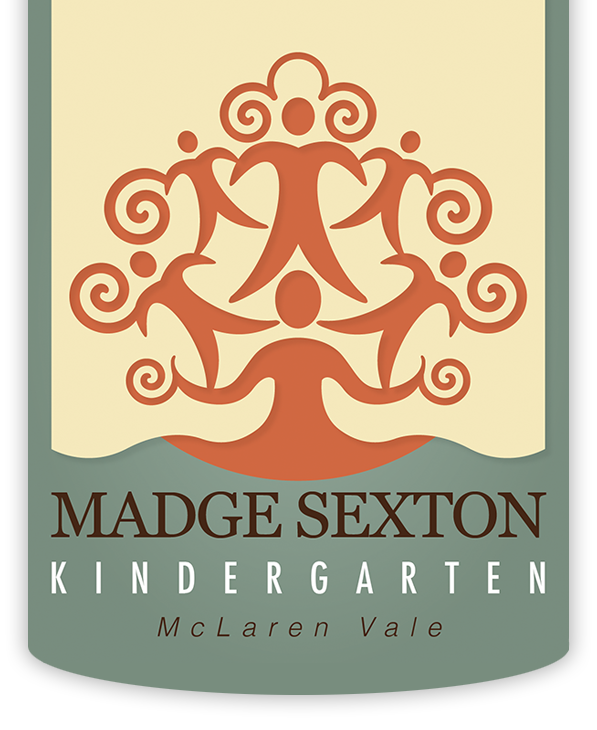How do I enrol my child?
Enrolment Information
Please complete the “Preschool Registration of Interest form” and email to dl.3647.leaders@schools.sa.edu.au.
Frequently Asked Questions
A number of enquiries from future users of the Kindergarten tend to ask similar questions as they investigate the local kindergartens/ preschools and schools for their child. A big question is always around understanding when their child will start Kindergarten. It is hoped that the following FAQ’s (frequently asked questions) will answer most of your questions! Please read the following frequently asked questions to see if your enquiry can be answered. If you still need to talk to the Director you are welcome to phone or email for further response.
Q: If I need to talk to the Director, how do I do this?
Q: Can I come and visit the Kindergarten?
Q: When will my child start Kindergarten?
A: Children are entitled to access 4 terms (1 year) of government preschool in the year before they start school.
If your child turns four before 1 May they are eligible to start preschool at the beginning of the year.
If they turn four on 1 May to 31 October they are eligible to commence preschool through the mid-year intake at the start of term 3 of that year.
If they turn four after 31 October they will be eligible to commence preschool at the start of the following year.
Q: When do I put my child’s name on the waiting list?
Q: How do I enrol my child at Madge Sexton Kindergarten?
A: You need to complete a Preschool Registration of Interest form. This can be emailed, delivered in person or posted to the kindy.
If your child secures a place at Madge Sexton Kindergarten you will be asked via email to collect an official enrolment pack to complete and return.
Please see our Madge Sexton Kindergarten Enrolment and Orientation Policy for more information.
Q: How do I find out which which preschool catchment area I live in?
A: Follow the link and enter your residential address.
https://www.education.sa.gov.au/sites-and-facilities/education-and-care-locations/find-school-or-preschool
Q: What school does this Kindergarten feed to?
Q: Do I need to talk to the Principal of the school I think my child will attend?
Q: Does my child need any particular skills to attend Kindergarten?
Q: What will my child have learnt at Kindergarten?
Q: What is the routine of this Kindergarten?
Please see the Parent Information Book for an outline of our Daily Routine.
Q: What does the Reception teacher expect of my child to enter their class?
Q: But the children are just playing………… how are they learning and what are they learning?
In a competitive and turbulent environment where no job is ever secure, the idea of expertise must include: versatility, imagination, reliability, and inventiveness. At the early childhood level, play is the perfect activity for the development of these qualities. Play can help young children deal with things they can’t always put into words. Tension, anxiety, fear and anger can be acted out in play. An experience can be replayed many times while children gradually come to grips with it.
“Play starts at birth and early childhood environments that promote play for all children and allow children to feel motivated, esteemed and appreciated are cause for celebration.” (Elspeth Harley 1999)
Observation of children participating in dramatic play demonstrates that they are using a wide range of cognitive skills as they plan and implement their play. (Observe your child at play!) These skills include; divergent thinking, understanding concepts, problem solving, imagining, limitation, visual/spatial discrimination, anticipation, attending behaviours, planning, concentration, reasoning, linking cause and effect, taking the perspective of another, choice and use of resources, testing relationships and adapting responses, classifying, and memory recall. When children initiate pretend play they often become totally absorbed, and can be observed demonstrating skills and behaviours, which are more refined and advanced than at other times.
The environment, props and the social interactions serve as scaffolds whereby the child can progress to high levels of development and understanding. Through play experiences children develop self-motivation and the ability to make their own choices. They balance individual freedom with social cooperation, negotiation and responsibility for the welfare of others. They develop the ability to reflect and learn from their own mistakes with courage and confidence in themselves and learners. Play can be the perfect context for developing these life skills.
Q: Can my child start “early”?
Q: My child has special health/medical considerations, e.g. allergies to nuts or bees, asthma, etc. What happens?
A: Madge Sexton Kindergarten is a DfE (Department for Education) site and adheres to very strict policies when it comes to health and medical conditions. Please see the Director for more information specific to your child or consult our policies page.
Q: What is the referral process?
Q: I think my child is gifted. What does this Kindergarten offer?
Q: Can my child have choose other sessions that fall outside of the set groups (Group 1 and Group 2)
Q: Can my child swap groups?
Q: Does my child have to access all sessions allocated to him/her in a group?
Q: My child has English as a second language, what does the Kindergarten offer to help?
A: Children with bilingual needs may be eligible for some support time from a Bilingual support worker who speaks the child’s first language. The time available varies from term to term according to funding availability and your child’s needs. The staff team may need an interpreter to ensure that parents’ are aware of our learning program. Children who have limited English can sometimes find it more difficult to settle into Kindergarten in the first instance. The staff team will endeavour to make your child’s introduction to the Kindergarten as smooth as possible.
Q: My child has special needs, what does the Kindergarten offer to help?
A: All children are welcome at this Kindergarten. If you have any reports from Paediatricians, Speech pathologists, Psychologists or other specialists, these would be useful to examine what methods the teaching staff may need to use to help support your child’s development. Children who need support may be eligible for some time from a support worker who will help your child to access the learning environment. The time available varies from term to term according to funding availability and your child’s needs. Regional support such as the Disability Coordinator, Speech Pathologist, Psychologist, Hearing Consultant, etc. may need to be in contact with families and the Director to ensure that your child’s needs are met. If you believe that your child will need support as soon as they enter Kindergarten please contact the Director as soon as possible to provide the Kindergarten with information about your child’s needs.





